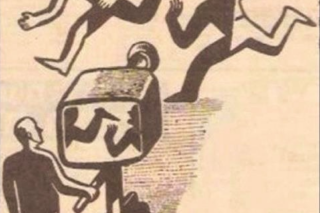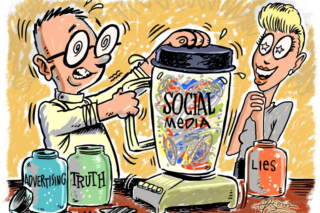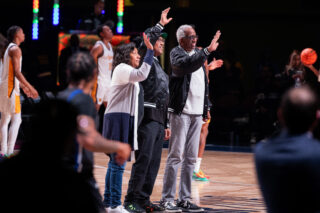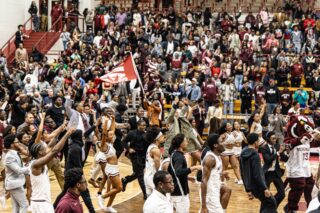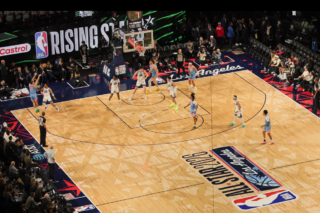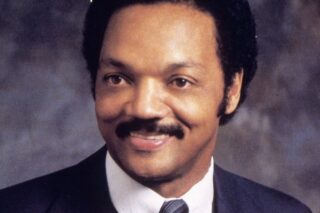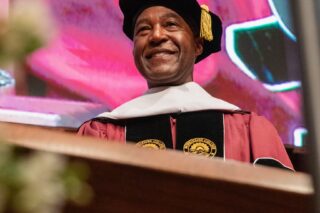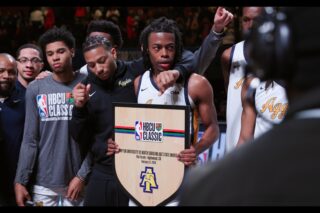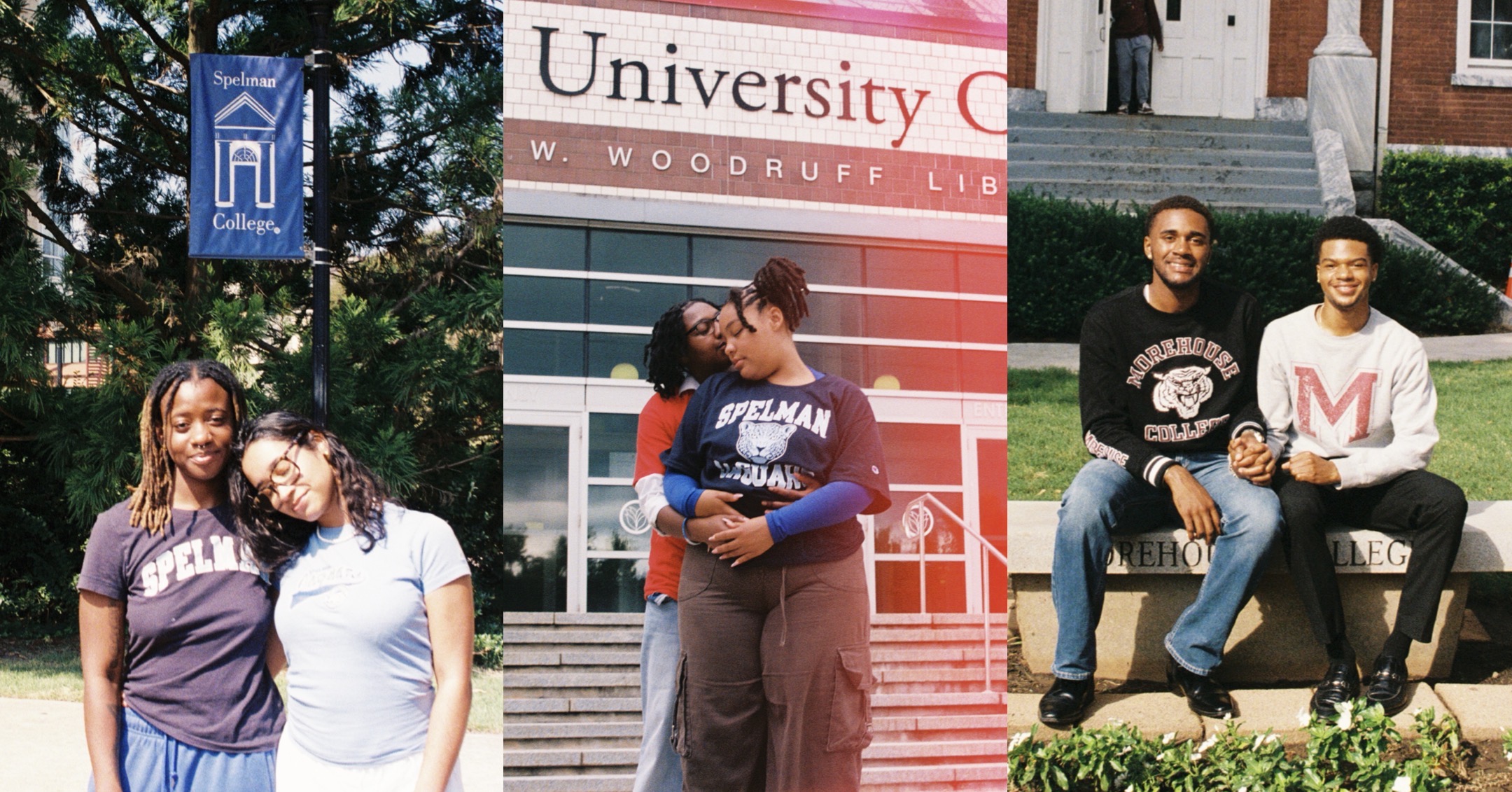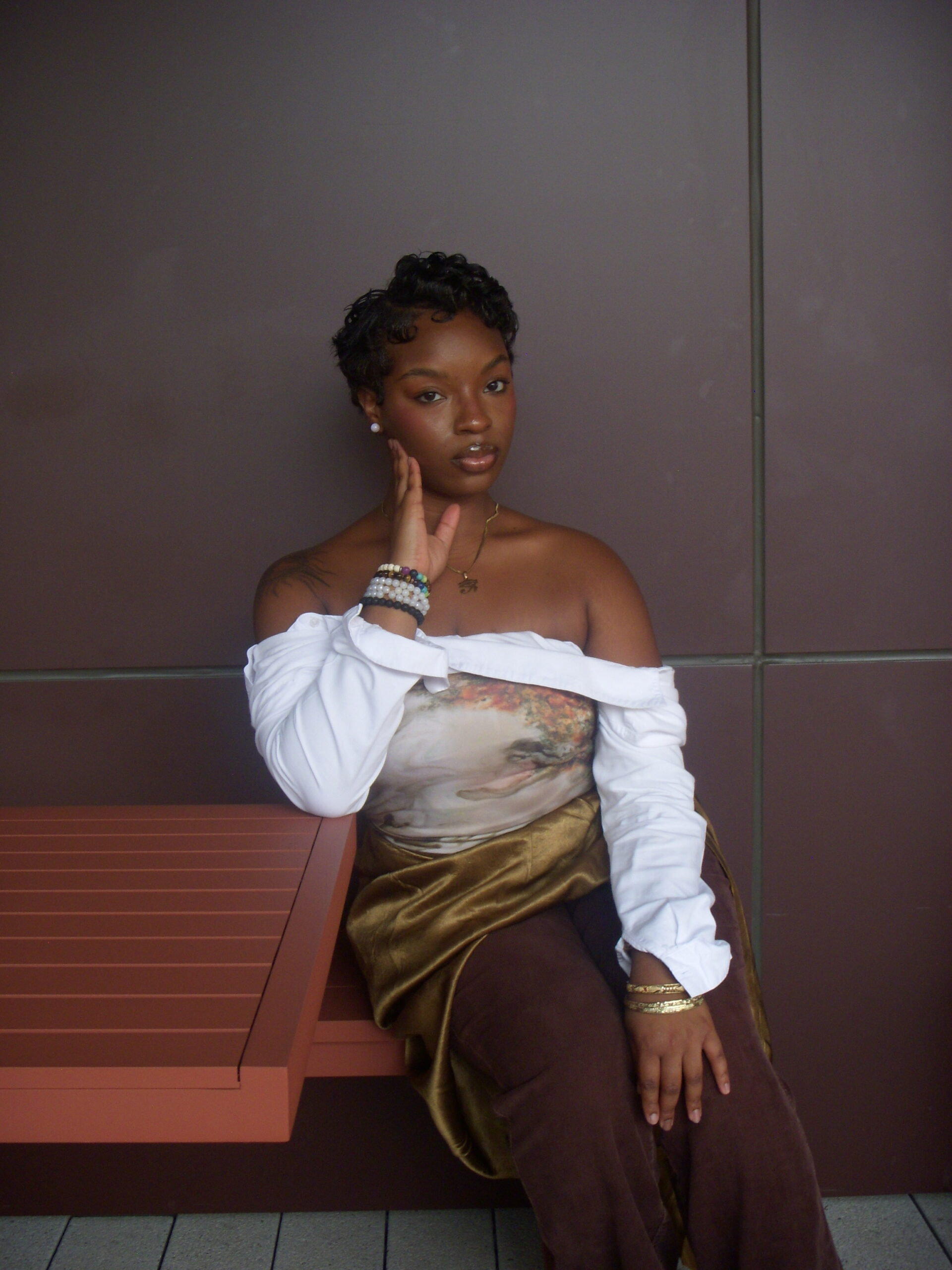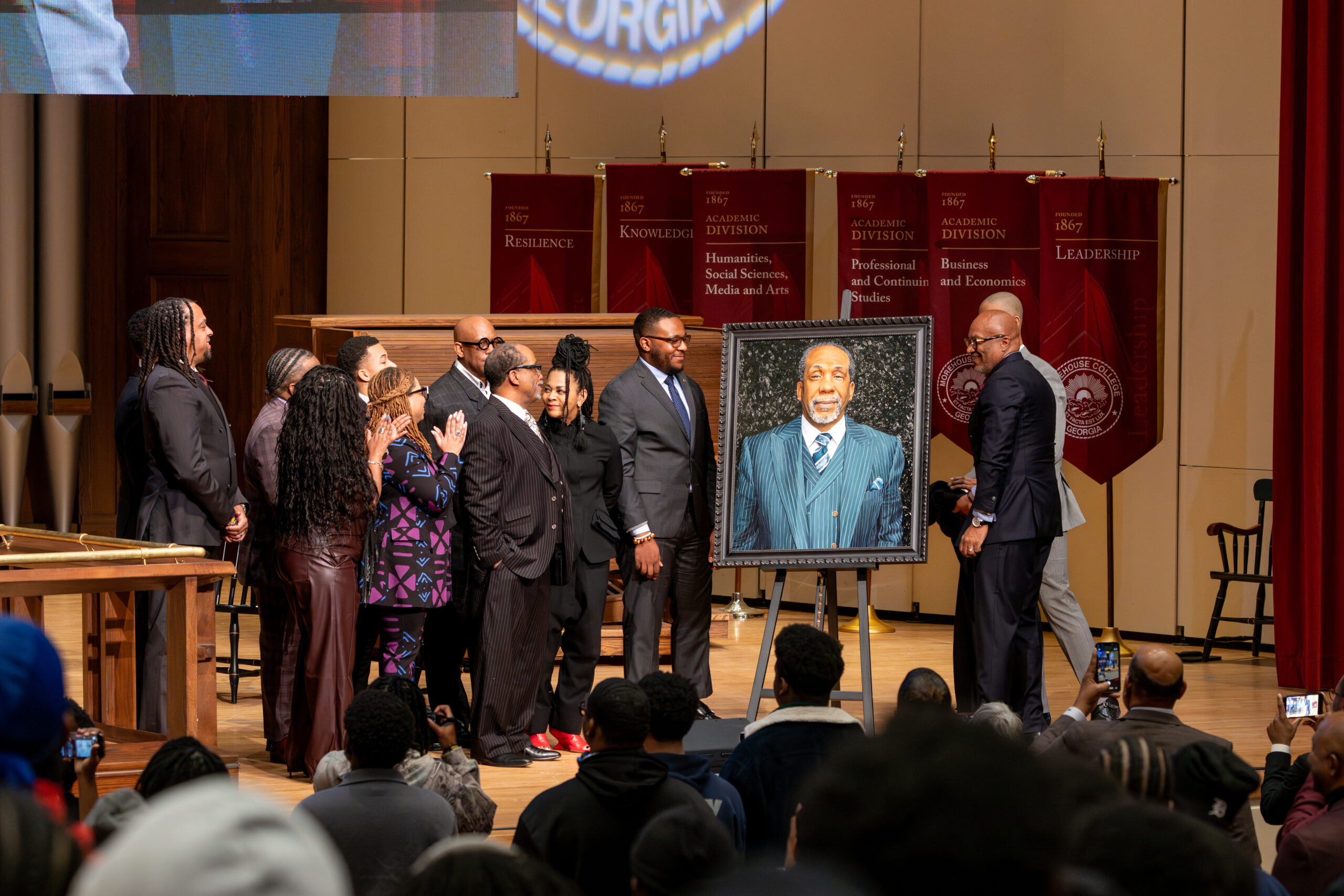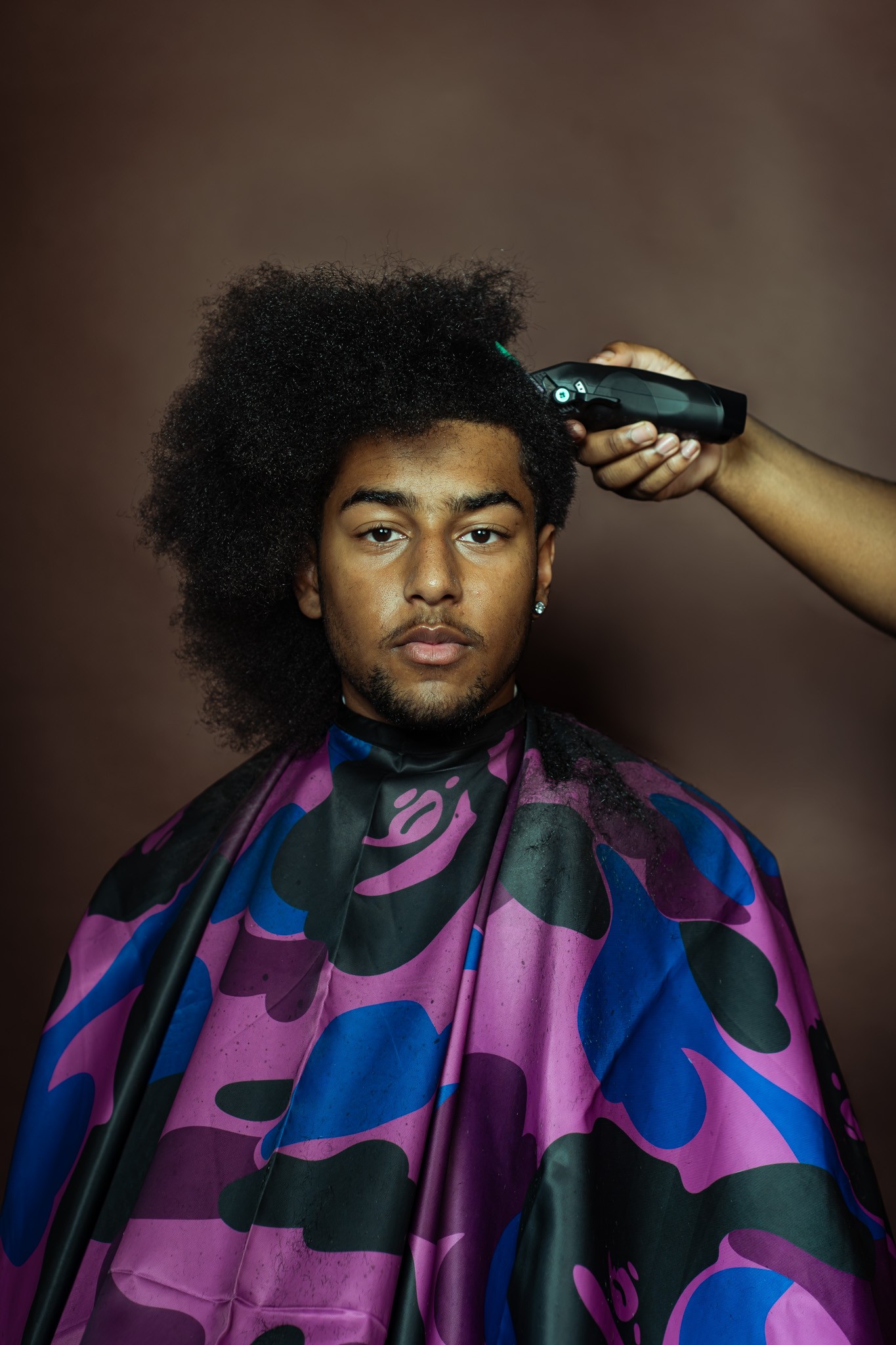In the heart of the Atlanta University Center, love blooms in many forms. For generations, the AUC, home to Morehouse, Spelman and Clark Atlanta, has been celebrated for cultivating Black excellence. But for queer students, that journey toward excellence often includes the task of carving out space where love can exist freely and authentically.
Across the three campuses, three couples are doing just that: John McGee and Benjamin Cabral (Morehouse, Class of 2028), Makayla Moore and Ana Villavasso (Spelman, Class of 2026) and Jaylin Lee-Sumlin (Clark Atlanta University, Class of 2025) with Olivia Payton (Spelman, Class of 2026). Through vulnerability, courage and joy, they are expanding the definition of Black love and reshaping what it means to be queer in the AUC.
John & Benjamin: Creating space at Morehouse
When sophomores John McGee and Benjamin Cabral first crossed paths at Morehouse, neither expected their story to become a statement about visibility and belonging.
“I didn’t come here with a plan like saying I would navigate a relationship this way,” McGee, a political science major, admits.
For both, love became an act of resistance and representation.
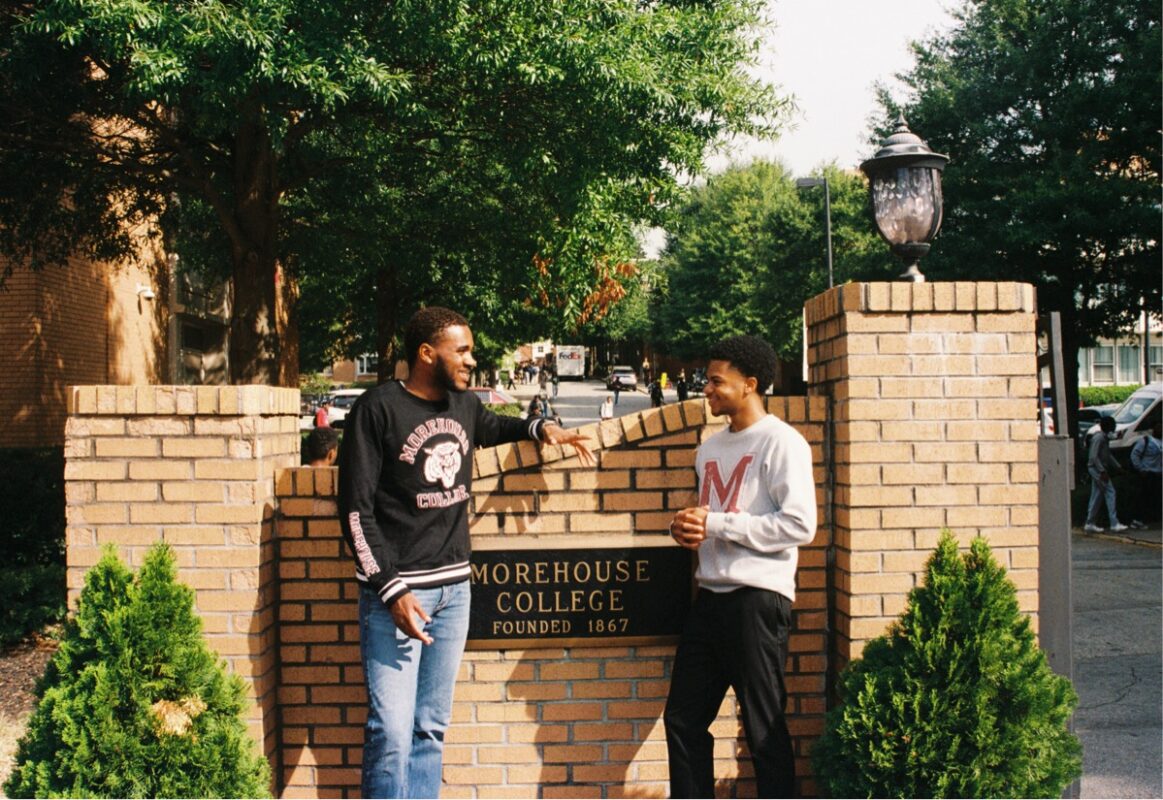
“I hope they see themselves in us,” McGee says. “I hope they know that they can be a man from Morehouse and be in a gay relationship at the same time. You don’t have to choose between the two.”
Still, being openly affectionate on a campus steeped in tradition wasn’t always easy.
“I was very uncomfortable showing physical affection because of how Black masculinity paints homosexuality,” Cabral recalls. “But queer students at Morehouse take up space in a way that allows us to love each other. I wouldn’t attribute my comfort here to the institution but rather to the people.”
For McGee, that community support has been key. “I don’t think the institution does anything proactively to create that space,” he says, “but our friend groups allow us to create our own space.”
Their partnership is also deeply tied to purpose. McGee is an aspiring constitutional law attorney and/or federal judge — an area that often tests authenticity.
“[When] People vote for me, they’ll be voting for me for who I am,” he says. “Not for some type of false narrative that I present to them.”
Meanwhile, Cabral sees empathy, the foundation of his international studies major, as central to understanding queerness itself.
“At the root of all things international affairs related is empathy,” he says. “Seeing other people and being empathetic toward their situations is what helped me come to terms with being gay.”
Together, McGee and Cabral embody a new era of Morehouse men — unapologetically Black, queer and visible.
Makayla & Ana: Shifting the narrative at Spelman
Spelman College seniors Makayla Moore and Ana Villavasso have seen their school as both a sanctuary and a challenge.
“I feel like Spelman definitely has shifted the way I see womanhood in general,” Moore says. “Being in an environment surrounded completely by women made me appreciate different aspects of femininity more.”
Villavasso echoes that sentiment: “I definitely think I appreciate aspects of womanhood more and being able to express who I am as a non-binary person and as a woman as well.”
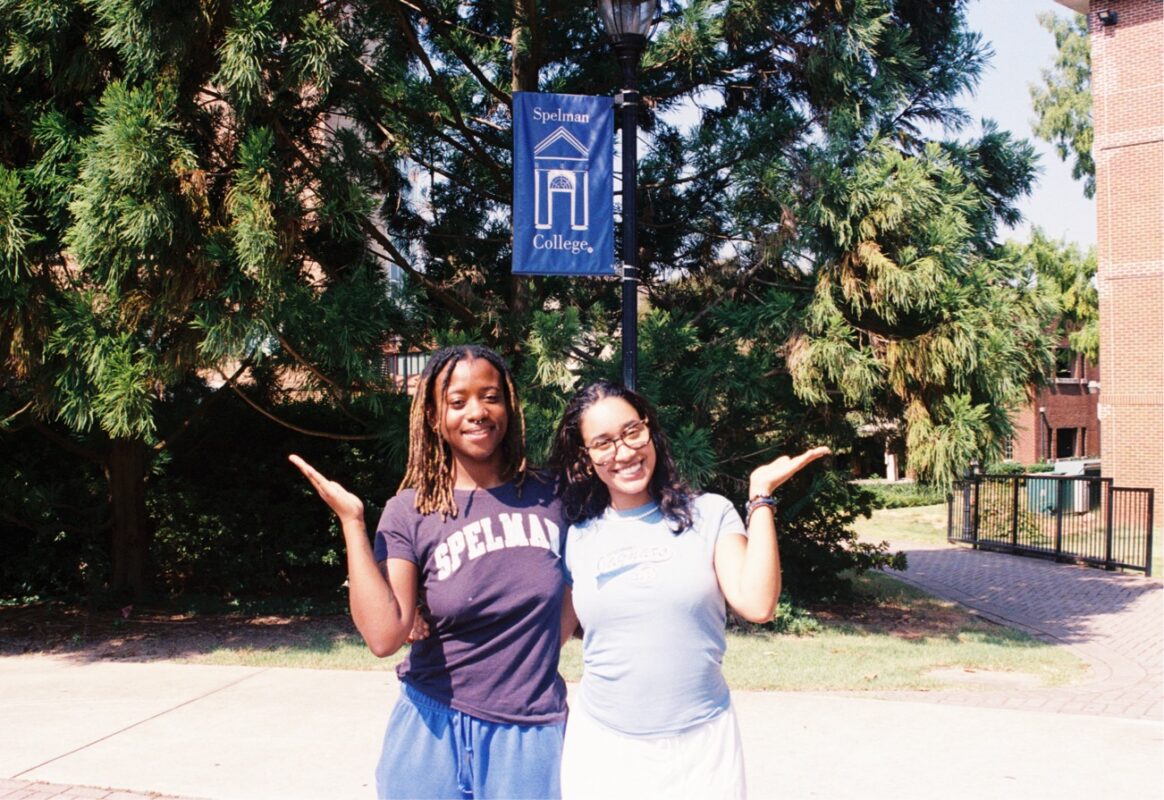
As leaders and members of Alpha Kappa Alpha Sorority Inc., both Moore and Villavasso are helping shift conversations about queerness within Black Greek life.
Villavasso was the 2024-2025 President of Spelman Afrekete, Spelman’s LGBTQ+ student organization.
“Being in a sorority and being the president of the queer organization on campus, I was able to shift the narrative about what it means to be intentional in those spaces,” Villavasso explains.
Still, Moore admits that not everyone feels that same freedom.
“It’s really disheartening to hear that some people are still kind of battling with how to express their sexuality at Spelman,” she says, “because I feel like this is the one place where you should be able to express it very freely.”
Both women recognize that progress is ongoing with Moore stating “there’s still not enough education about how different queer identities present themselves.”Yet their presence — and leadership — have already begun changing the narrative.
Ana expresses that she hopes her and Moore’s story can inspire people to be who they are.
Together, Moore and Villavasso are redefining sisterhood, queerness and authenticity whilst proving that love and leadership can coexist unapologetically.
Jaylin & Olivia: Love beyond expectations
When Clark Atlanta alumna Jaylin Lee-Sumlin met Spelman senior Olivia Payton, their connection was immediate. Payton recalled it as “a sunshine moment” and “feeling really natural.”
Their relationship, however, exists within complex layers of identity and visibility. Lee-Sumlin, a proud member of Zeta Phi Beta Sorority Inc., describes the challenge of being a masculine-presenting woman in spaces that often expect femininity.
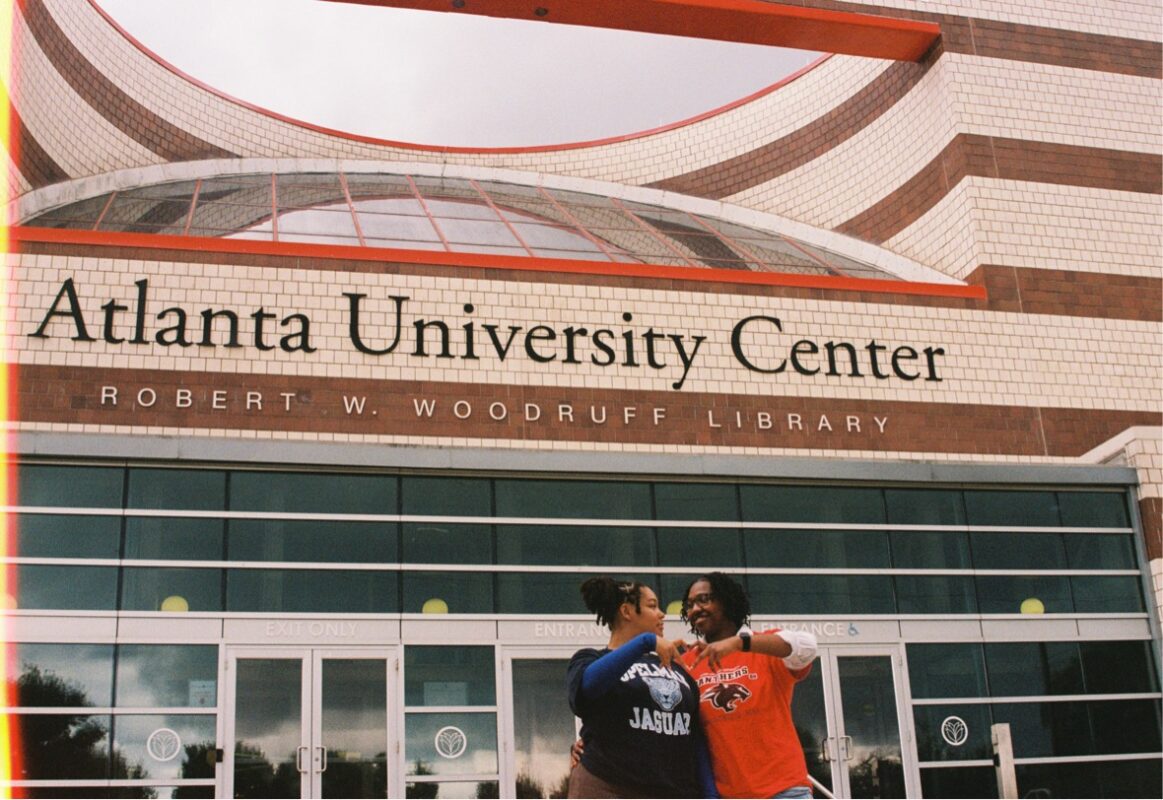
“There are not many Zetas that are masculine-presenting and openly queer,” she says. “It’s hard but if you’re strong, and you’ve got community and sisterhood, that makes all the difference.”
Payton, a member of Sigma Gamma Rho Sorority Inc., has also navigated her queerness within traditionally hyper-feminine environments.
“It’s been a journey to feel comfortable in spaces that often expect you to conform to certain gender norms,” Payton said. “But it’s so important to find your community and not be afraid to seek out spaces where you can truly be yourself.”
Their partnership — built on mutual respect and intention — offers lessons for love itself. Payton advises students to be intentional with their relationships.
“Be intentional with your love. Be intentional with your sex,” Payton said.
“You cannot pour into other people, let alone a relationship, if you are not pouring into yourself,” Lee-Sumlin adds.
Both have faced the realities of long distance and external judgment but remain committed to each other’s growth.
“We knew very quickly that we were for the long haul,” Lee-Sumlin says. “When we have trials and tribulations, and when we’re at 60 versus when we’re at 100, we support each other no matter what.”
Their relationship shows a commitment to endurance, authenticity and the future.
“Don’t let anyone else define your identity,” Jaylin said. “Own your truth.”
Changing the narrative
Each of these couples exist as living testaments to what it means to be Black, queer, and deeply in love in spaces not always built with them in mind. Their stories confront long-held stigmas and remind the AUC community that queerness is not an exception to Black identity — it is a part of it.
Across their words and worlds, a shared message emerges: love, in all its forms, deserves to be seen.
Copy Edited by: Niles Garrison, Managing Editor

